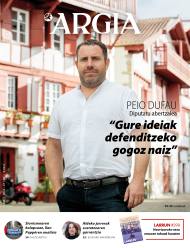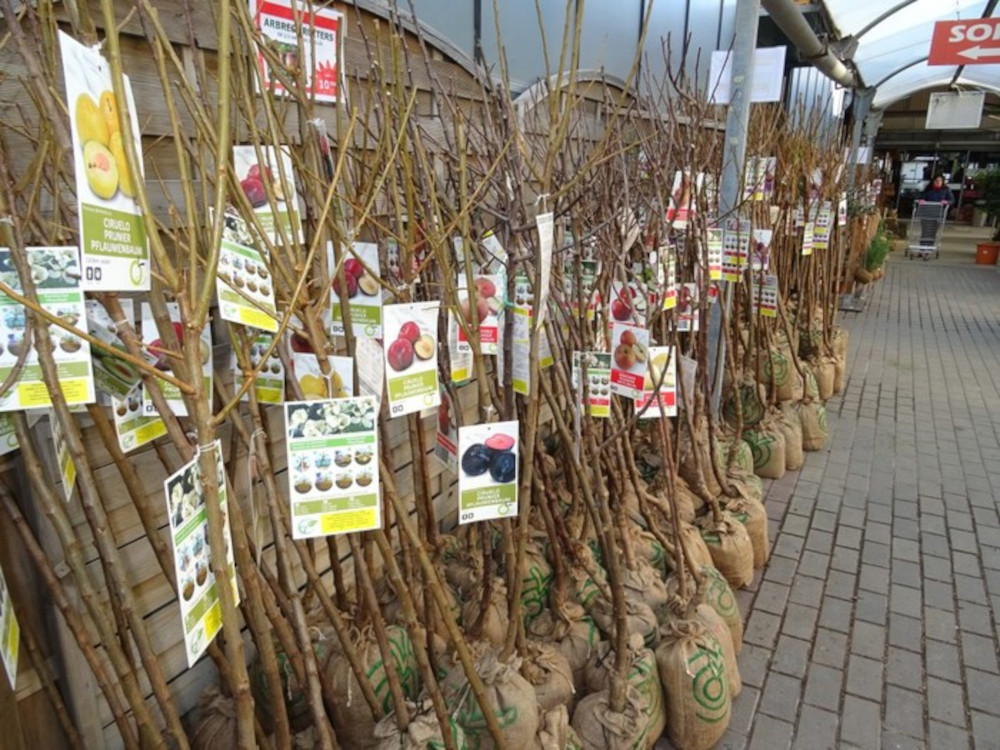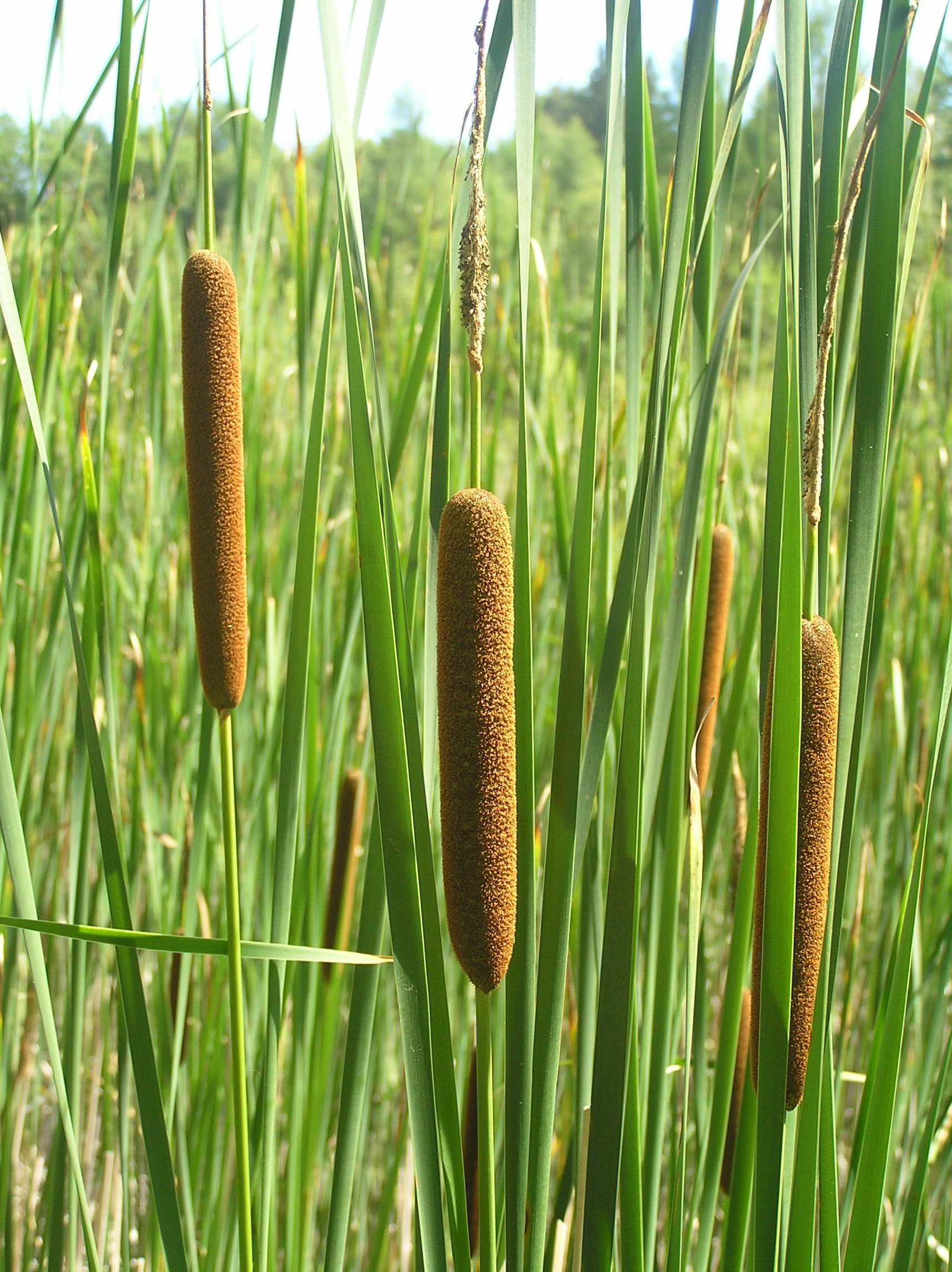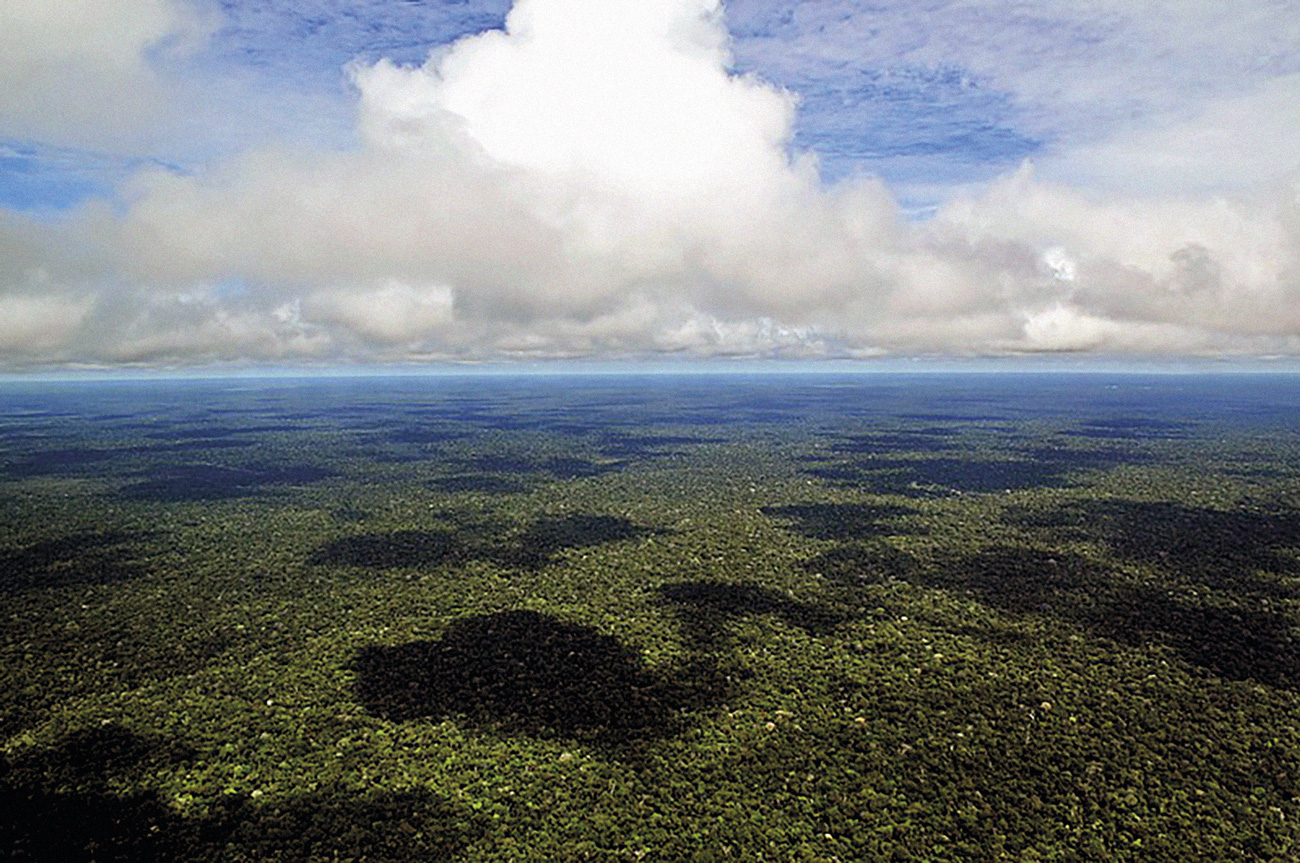"People want to change the tree immediately and benefit, and that's not there."
- Exit from Tolosa and climb to Bedaio to Menditxiki. In one Bedaio, in the other Zarate, on the border between Gipuzkoa and Navarra. There are the plots we propose, Itxitua and Erlo, in other times Lahar, Pagadi today: You have the forest of Gregorio Ugartemendia Zubilwaukee.

Where is the story of this hayedo?
It's about 30 years ago. Here everybody was changing pine, and my brother and I, one to the other. “Pine doesn’t, we have to change the beech, which cleans the corners.” And that’s why we started, especially. The mountain technician here also told us that. “Down [next to the cottage] comes well the beech, and on top will surely come well.” [Gipuzkoa] The Council had a nursery in Urnieta, and from there we brought the beech plant. He was said to be Belgian. We were told that the weather was colder than here, and that the weather was going to be fine here.
So you started ...
First, we changed a thousand beech trees down, and after five years, we saw that there was a good one. However, we were told that to change more land, a forestry engineer project was needed. And we did, and we changed 5,000 more, up on the mountain. Now there is not so much, as some have been thrown out. People still like to ask why we didn't do it like everybody else and we put the pine in, but that's why: the Hague cleaned the edges and the pines stained them. Pine brought in sasia. Even though it wasn't, the pine had the sasia. But you also have to take care of the beech, clean it and prune it, remove the branches separately, cut the ones above...
Years of work and project.
Yes. My brother and I said, "You have to change the beech! You will see what others do!”... Before this hayedo they already put the beech in our house. So it was not just our idea. That desire already existed before. Changing a beech is always a great thing, cleans the ground, doesn't let the dirt fall! There was a lot of laharra. Without beech, this place would be a shrug.
However, you have not only begun to change the beech. They needed the approval of the technician.
He said to us, “The beech is going to come well. In addition, here is the limestone, and in the limestone comes well the beech.” And I've already told you that there's a clean bottom. They also say oak, but the oak does not completely wash the bottom. Until then, this land was fenced and frequented by cattle. Today you can also visit the hayedo, but on the interior road of the hayedo.
We like to see the fruit from one day to the next...
That is what is there! That is what is there! We, on the other hand, change the beech for the descendants, so that they too do something. It takes about 50 years to strengthen the beech tree, and people don't have patience: they want to change the tree and then they benefit, and that's not. Not in our hands. People want to do it right away and pick it up immediately, and with the trees, at least, bad! The beech trees here are still fresh, they've also been made entresaca.
Have you talked about the next ones, if they want?
Our children have also walked through this forest, yes, especially the son. At first, when the beech plants were small, the whole environment had to be cleaned up. It was full of grass and bushes... “Now you’re also going to Bedaiora!” they told me, while I, thankfully, enjoyed here. On vacation my son was coming to help me. Our son now lives in the farmhouse, he loves the forest and there he also takes care of the trees. And the daughter is also concerned about the forest, or at least the land, which has already started in the orchard.
It was the first meadow left on this hillside of Menditxiki. Now, instead, an amazing hayedo. What do you think?
For me, the hayedo is a great thing. This one is from Basilunbe, because in that area we have another hayedo. I didn't teach it... In Gipuzkoa and Bizkaia you see a lot of black pine, but we didn't want that. We change the beech and the usual thing. “It changes, but when will the tree arrive?” It is said that he is fifty years old, and we have been lucky, because we have known the forest. That's the joy. Now, instead, they say that the climate is also changing, and I don't know what it's going to be on.
We walked through the forest you speak, but you were not born here...
I was not born in Bedaio, no. My mother was from here, from the house Gurbilaundi. The dwelling had six lives. I mean, six families lived there. But my mother went from here to Tolosa, married Luzuriaga, to my father's house, in the San Esteban neighborhood, where we were born. I started in 1935, and at the age of two, the war was going to start. I remember only that my uncle came from war. His name was Anjel, our father's brother. We were seven brothers.
Was there a school?
Yeah, and we went to the bars, but we didn't do two whole seasons. A bangle was our teacher. It was from Beruete, Basque in those days. We went to school, but we didn't learn much because the guys in Gurbilaundi needed a guy to work and they sent me to my mother's house. I started coming to Gurbilaundi at the age of 14, in summer. They only had a child, but he was also aging and I started coming in my help. In winter I used to be at home [Luzuriaga]. I work there too! Ha ha ha! In summer in Gurbilaundi, in winter in Luzuriaga, but when I was 15 years old, I started working on screws. I started working as a mechanic.
And you've lived on the street for a long time, and not in the hamlet. Were cements and street asphalts easily resigned?
When we get married, we settle down on Letxu Street. From house to work and from work to home, but I went home every day! I was there every afternoon. My wife worked and took my children and went to Luzuriaga, to the house. My parents were there and I was breathing. And now, even if we live on the street, if we can, my wife and I go home every day. That's where we live our son. I snuck a little and she, for her part, got a little scared.
We have gone from one side to the other of the mountain, through the hayedo, but I have been accused of having also practiced the rowing ...
You've also been told! ? Ha ha ha! In our time, in Tolosa there were bateles and we left the sanjuanes and the neighborhoods: The groups were Olarrain, Amarotz, Kabila... I was going out with Olarrain. Then, from Orio, the skipper, Klaudio Etxeberria, came to see us, and then we formed the trainera and started sailing, in the name of Tolosa. We were training at Orio. But then there was no coach like now. If they were going to Orio, they would soon make mistakes. “This is going to throw a little bit of the waistline!” and this and that, they started right away.
You won a flag...
With Orio! Claudio Etxeberria, Batista and Antonio Oliden, Tiburcio... We're still meeting. Every year we make a meal. I went out with Orio in the championship, in two years, in 1963 and in 1964, and in the latter it was where we got the flag, in Bermeo. That day, retracting into the sea, the rower started to put water in front of him, and he passed by, he was little Kaiku. I started traineras with Tolosa, then I went with Ibarra, Lasarte-Michelin and Orio. So Hondarribia was our biggest rival.
Although you worked at the Bizia factory, you made the forest, you were a quick rower, a bertsolari also no small ...
Too? ! At home we have most of the Auspoa collection, yes. And your LIGHT too many. We received her home a long time ago. In Auspo's books there are also verses of remers... We've been fond of the Bertsos, and we've learned a few of them by heart. In the past, a market was held on Saturdays in Tolosa and the salespeople came with the bertsopaperak and sang. My father was half a bertsolari and he was buying verses and singing at home. And then we've also met the Bertsolaris.
Which and which, for example?
Basarri. They said he was the luckiest. My brother also liked it. Along with Basarri, we have met Uztapide, Xalbador, Garmendia... I almost liked Uztapide. Uztapide was humble. Basarri, for his part, had a kind of stupidity, and I do not like the proud, I have always been against them. Also, our uncle wrote the book of verses in Auspoa. José Ramón Zubilwaukee was one of the first books in the collection! [Lardasketa (written in Argentina by a Bedayo between laughs and tears), Auspoa, 1964]. And you, take the Auspo?
The dust has lifted the actions of a group of strangers against a Kutxabank monoculture in the Urola valley. In this regard, ENBE, ENBA and GBE (Gipuzkoako Basozale Elkartea) offered a press conference. They condemned the fact and called for the perpetrators to punish it.
After... [+]





















